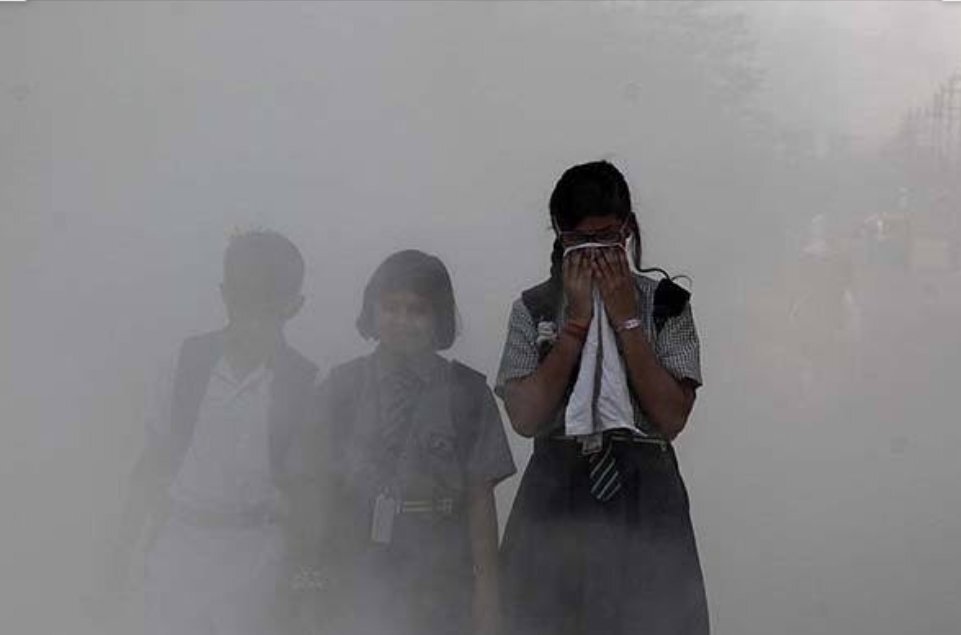In India, at least 2.45 million people lost their lives due to air pollution caused by the burning of fossil fuels, like coal and diesel, in 2018. These deaths accounted for 30.7 per cent of the deaths in the country, reports a new study published in the journal Environmental Research. The study has been conducted by scientists from Harvard University, University of Birmingham, the University of Leicester and University College London.
The data collected by the researchers showed around 0.5 million (471,456) additional deaths of people above 14 years of age were reported because of fossil fuels in Uttar Pradesh — the highest in the country. This was followed by Bihar with 0.29 million (288,821) deaths, and West Bengal with 2.8 million (276,312) deaths.
With over 0.1 million such deaths, Haryana, Madhya Pradesh, Maharashtra, and Tamil Nadu were not far from the list. Sikkim reported the least number of deaths at 359.
While air pollution remains a public health emergency in India, the Budget 2021-22 has slashed funds meant to tackle air pollution. This year, the allocation was reduced from Rs 4,400 crore to Rs 2,217 crore, a drop of 50 per cent.
A global concern
Meanwhile, more than eight million people died worldwide in 2018 from fossil fuel pollution. The study published yesterday, on February 9, shows the burning of fossil fuels was responsible for about one in five deaths worldwide.
Both environmental and health experts stressed on the need for governments to control the use of fossil fuels and check on the emissions caused by it, to prevent such premature deaths.
The recent study greatly increases estimates of the numbers killed by air pollution. The most recent Global Burden of Disease Study, the largest and most comprehensive study on the causes of global mortality, put the total number of global deaths from all outdoor airborne particulate matter — including dust and smoke from wildfires and agricultural burns — at 4.2 million.
The Harvard study pegs it at eight million deaths.
“When we see that deaths from fossil fuel combustion exceed deaths from malaria by a factor of 20, we must recognise that this is a major global health crisis,” said Sarah Hsu, executive vice chair, Warren Alpert Medical School of Brown University.
“Thus it is critical we start training current and future health professionals about the downstream effects of fossil fuels, including air pollution and climate change, and how they disproportionately impact the health of our children, elderly, pregnant patients, and communities of colour,” Hsu added.
The burning of fossil fuels – especially coal, petrol, and diesel – is a major source of airborne fine particulate matter (PM2.5), and a key contributor to the global burden of mortality and disease.
“Air pollution is an invisible killer that affects the lungs, heart, and brain of vulnerable individuals, including children and older adults. Decreasing fossil fuel consumption is an essential step to improving air quality and giving everyone the right to breathe clean air,” said Neelu Tummala, climate activist based in Washington DC.
“As an emergency physician working on the front lines, I’ve witnessed the health impacts of burning fossil fuels with disproportionate effects on my most vulnerable patients – children, older adults, people of colour, outdoor workers, and those from low-income communities,” said Amy Collins, Health Care Without Harm senior advisor for physician engagement. “Most devastatingly, I have seen how long-term exposure to air pollution leads to an increased death rate from COVID-19. To start saving lives, we must transition to renewable energy now,” she added.



















